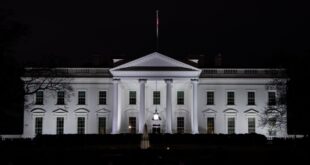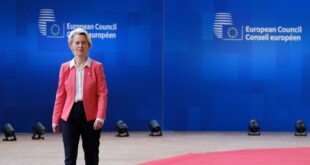By Shehab Al Makahleh Follow @ShehabMakahleh
Trump’s multibillion arms sales deal with Saudi Arabia has touched upon many sore spots and rekindled fears of more wars in a troubled region to which the US president promised peace deal of a century. As the situation in the Middle East is rapidly changing, both on the military and the political scene, especially in Syria and Iraq, and between Gulf Arab states and Iran, other key leader is heading to the region ― Russian president Vladimir Putin.
There are indications that Russian leader’s Middle East tour might start with Kuwait, followed by Qatar. The tour would include visits to other regional countries as well. The Kuwaiti deputy foreign minister Khaled Al-Jarrallah earlier said that President Putin will be visiting Kuwait soon.
Putin’s visit to Kuwait is important as the country, along with Oman, has been making significant diplomatic efforts along with Russia to bridge a divide between the Arab Gulf states and Iran. The visit will closely follow the Saudi deputy crown prince Mohamed bin Salman’s visit to Moscow, and is a crucial step to ensure containment rather than flare up of regional conflicts.
What would make Qatar the second leg of Putin’s visit is the recent release of the Qatari royals’ hunting party kidnapped in Iraq early last year. The release, negotiated through Russian efforts, has played an important role in changing Qatar’s position in the Syrian and Iraqi conflicts and allowed for the swap of large number of civilians held by extremists in exchange for Qataris. The release also resulted in a call between Emir of Qatar and Iranian leaders recently. There rumors appeared in Saudi media about secret meeting between the Qatari Emir and the Iranian military commander Qassem Soleimani, which enraged Saudis and the UAE.
Clearly, the geopolitical sands are rapidly shifting in the Gulf at the moment. The Middle East grand chessboard, as wrote New York Times recently, has turned into a game of cards. Could Russians hold the real trump card this time round?
The recent Riyadh Summit culminated in the agreement on formation of US-led ‘Arab NATO’, along with a mega arms deal between the United States and Saudi Arabia. Yet, instead of bringing along hope of more regional stability ― which was its stated objective, even during the Summit there were objections to the force in the making. The opposition was voiced by Egypt which stated its disagreement with the new alliance’s intervention in Syria. Moreover, the announced ‘Arab NATO’ is primarily aimed at countering Iran ― which raised fears of a much larger and more dangerous regional conflict than the ongoing ones in Syria, Iraq and Libya.
Moreover, another significant event in the Gulf region is requiring attention and careful address. Just days following the Riyadh Summit the rift between Saudi Arabia and Qatar reached nearly a boiling point. Qatar News Agency network was allegedly hacked and inflammatory statements against Saudi Arabia and pro-Iran appeared, and were attributed to the Qatari Sheikh Tamim al-Thani. Its social media published statements on Doha’s intent to withdraw ambassadors from most GCC countries. The GCC countries responded by blocking state sponsored Al-Jazeera network and other Qatari media. The incident, which Doha denied as fake news, has increased the discord between Qatar and key GCC countries, Saudi Arabia and the UAE which started in 2014 when both countries recalled their ambassadors to the brotherly Gulf nation.
The newly rekindled tension with Qatar is extremely important from the regional security point of view, as the recent comments from the UAE warn about Gulf Cooperation Council’s deepening crisis should the conflict with Qatar continue. In the midst of crisis between Iran and Saudi Arabia the internal GCC conflict is the last thing the alliance needs. The potential of Qatar’s alignment with Iran also brings into question the future of the US CENTCOM’s base in Qatar. Add to that the Turkey-NATO discord, big changes are seemingly in the cards.
During his Riyadh visit US president Trump has played the war card with the weapons deal. There’s a chance that Russian president’s visit to the mentioned Middle East’s states would be about ultimate peace deal ― that between the GCC and Iran.
 Geostrategic Media Political Commentary, Analysis, Security, Defense
Geostrategic Media Political Commentary, Analysis, Security, Defense





